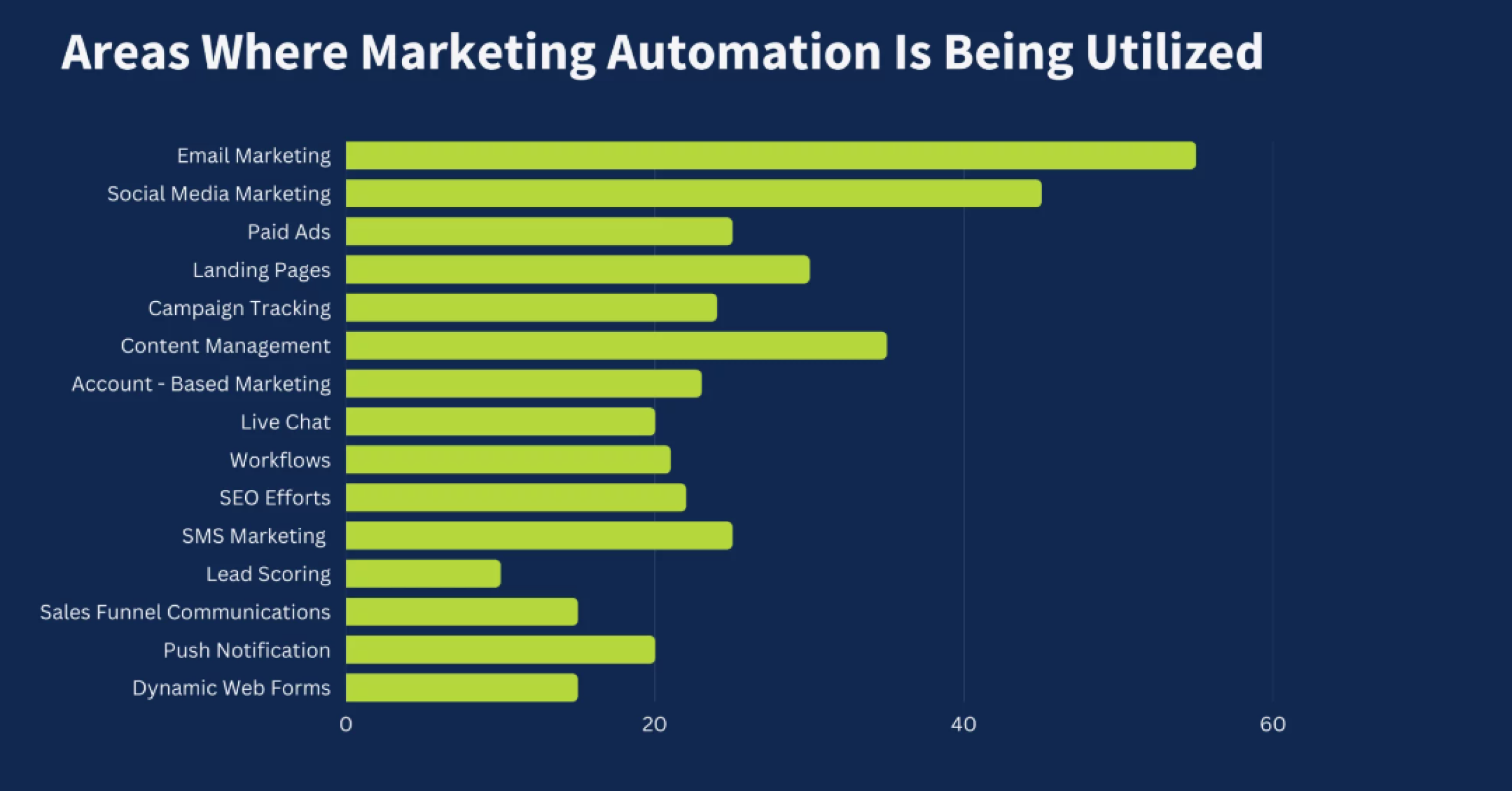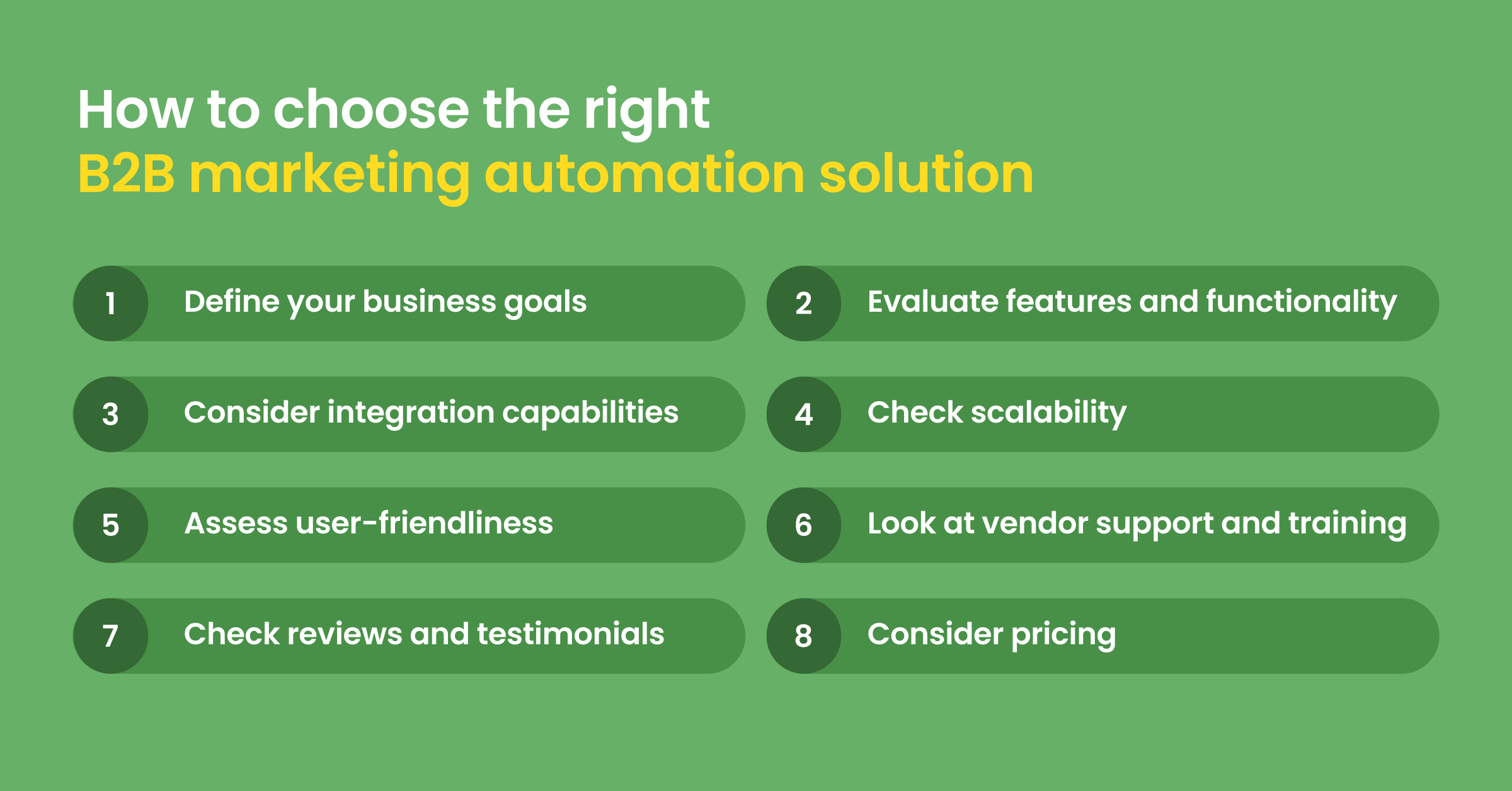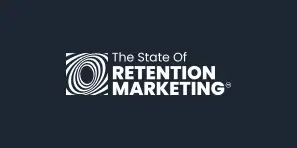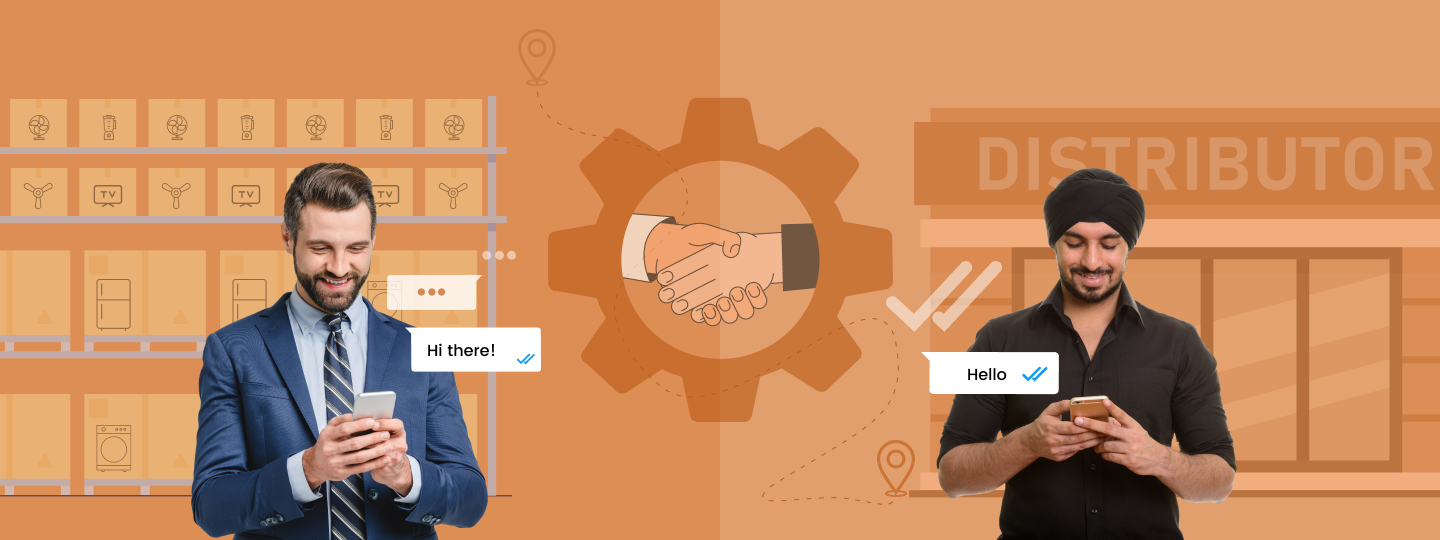Picture this: You’ve worked hard to attract possible leads, sharpened your B2B marketing strategy, and then finally, signs of engagement start showing up. But instead of sales going up, everything is at a standstill. So, you’re left wondering – “Why isn’t it working?”
Today’s business leaders want a fully personalized buying experience. That’s a tough ask, especially when resources are limited. To make things worse, a lot of marketers are still manually managing tasks that could be automated, making everything slower and affecting customer relationships and return on investment (ROI).
So, what’s the solution? Marketing automation. It’s not just about sending out emails on time. It’s about nurturing leads, qualifying them, and finally converting them into actual sales. In fact, it doesn’t stop there. The benefits of marketing automation extend even further to customer retention and reactivation.
According to a study by Adobe, a staggering 98% of marketers believe that marketing automation is essential for success. With automation, your team can engage with audiences better, drive higher-quality leads, and improve customer relationships for a better marketing ROI.
In this blog, we’ll take a deep dive into how B2B marketing automation can turn your business from a lead machine into a sales powerhouse. Let’s explore the power of automation, one lead at a time.
Understanding B2B marketing automation
B2B marketing automation, at its core, involves using technology to automate repetitive marketing tasks, streamline marketing workflows, and measure the performance of marketing campaigns. It’s the secret ingredient that can transform your business from a lead generator to a sales converter.
For instance, you’re a B2B SaaS company. Your sales funnel might look something like this:
- Top of the funnel: You create blog posts, infographics, and webinars to educate potential customers about the importance of the problem your services solve.
- Middle of the funnel: Once the potential customers start showing interest, you send them personalized emails or newsletters, offering a free trial or a demo of your software.
- Bottom of the funnel: Once they start using your trial, you send follow-up emails to guide them through the different features of your software and address any queries they might have.
In this process, there are a lot of moving parts. For example, determining who gets what content when, following up with leads, monitoring user activity, etc. And doing all these manually can be incredibly time-consuming and prone to errors.
That’s where B2B marketing automation steps in. It helps you automate these tasks, enabling your team to focus on creating high-quality content and nurturing customer relationships.
But, B2B marketing automation goes beyond just task automation. It offers in-depth analytics and insights that help you understand your leads better. With automation, you can track your leads’ behaviors, know which content resonates with them, understand their position in the sales funnel, and craft personalized marketing strategies accordingly.
Let’s continue with our example. Imagine if you could know which blog posts your leads are reading or what features they used during the free trial. Wouldn’t that make it easier to send them personalized messages that hit right at their pain points?
In a nutshell, B2B marketing automation is your GPS for navigating the complex terrain of B2B marketing. It helps you deliver the right message to the right person at the right time, all while saving time and increasing efficiency.
In the following illustration from OneIMS, you can see the various areas where marketing automation is used most. Email marketing and social media marketing are some of the top automated areas.
Key features of B2B marketing automation
B2B marketing automation offers a complete solution to streamline marketing tasks and responsibilities, enhancing productivity and efficiency. Here are some key features of B2B marketing automation:
Lead generation and qualification
Marketing automation plays a vital role in streamlining the generation and qualification of your leads. It accumulates potential leads from multiple channels – be it through web forms, email campaigns, social media interactions, or content marketing initiatives – and securely ‘stores’ them within your platform.
By utilizing a set of predetermined criteria, such as the lead’s behavior or engagement level with your brand, the automation tool sorts through the stored leads, categorizing them based on their ‘sales-readiness.’
By generating and qualifying leads, your B2B marketing automation tool effectively transforms an unorganized pile of potential prospects into a neatly organized database of quality leads. This allows your sales team to focus their efforts on the most promising prospects, saving time and increasing efficiency.
In essence, these two key features of B2B marketing automation – lead generation and qualification – are the engines that power your sales machine, driving your business toward growth and success.
Automated e-mail campaigns
An automated email campaign is a series of emails sent out automatically, triggered by your leads’ actions. This form of communication is a crucial aspect of B2B marketing automation and can significantly enhance the efficiency of your marketing efforts.
For instance, a new user could receive a series of welcome emails introducing the service’s features upon signing up for a service. This sequence would be triggered by the action of signing up without any manual input required from your marketing team.
Here are a few email marketing automation tools that you can leverage to boost your communication with your audience.
- WebEngage: One of the best email marketing automation platforms for hyper-personalizing every aspect of your email campaigns. With its drag-and-drop editor, you can design email campaigns on the go without coding.
- GetResponse: Known for its email marketing services, GetResponse also provides webinar software, a landing page creator, a marketing automation builder, and more.
- Marketo: A platform that enables marketers to nurture leads with personalized campaigns, launch email marketing at scale, and align campaign goals with their business objectives.
- ActiveCampaign: This platform combines email marketing, marketing automation, sales automation, and CRM software into a powerful marketing automation tool that helps businesses grow.
- HubSpot Marketing Automation: This platform runs on its CRM and has tools for email automation, landing pages, blogging, SEO, and more.
- Mailchimp: Known for its email marketing services, it also offers CRM, audience management, and more.
Personalization
In B2B marketing, the ability to tailor experiences to the individual needs and preferences of each customer is no longer just a luxury—it’s a necessity. This is where personalization, a key B2B marketing automation feature, comes into play.
Personalization in marketing automation is about providing a unique, tailored experience to each individual user or customer. It’s like a personalized shopping experience, where the store owner knows you by name, understands your preferences, and can recommend products that perfectly suit your tastes.
Imagine being able to send thousands of personalized emails, each crafted to address the recipient’s unique pain points and interests, at the click of a button. That’s the power of personalization in B2B marketing automation.
However, the implementation of personalization in marketing automation goes beyond just tailoring content. It can also include personalized customer journeys based on a user’s interactions with your brand. For instance, if a user shows interest in a particular type of product or service, the automation tool can trigger a specific workflow tailored to that interest, nurturing the prospect towards conversion.
Behavioral Tracking
Behavioral tracking involves collecting data on your leads’ and customers’ actions and interactions across multiple touchpoints, allowing businesses to gain deep insights into their customers’ preferences and behavior patterns. This crucial information enables the creation of personalized marketing campaigns that cater to each customer’s unique interests, thus increasing engagement and conversion rates.
For example, marketing automation software can help you personalize the content of your emails based on industry-specific content for different contacts. This level of personalization makes your content more relevant and engaging to your audience, much like how a personalized recommendation engine suggests products based on your browsing and purchase history.
CRM Integration
A key feature of B2B marketing automation is the integration of Customer Relationship Management (CRM) systems. Each time a user interacts with their product, be it through a trial sign-up, a feature usage, or a feedback submission, a data point gets created in their CRM system.
CRM integration in marketing automation is like a bridge connecting these data points with the company’s marketing initiatives. The bridge allows you to leverage user data to personalize their marketing campaigns, ultimately fostering better customer relationships.
Examples of B2B Marketing Automation
Let us see some of the different automation tactics that have proven their efficiency in the real-world B2B landscape.
- ApnaKlub
- Sked Social
- AMPXELL
Choosing the right B2B marketing automation solution

When it comes to driving sales and transforming your business, choosing the right B2B marketing automation solution is crucial. Numerous tools in the market promise to streamline your marketing efforts, but how do you determine which one is right for your business?
Here are some steps to navigate the selection process:
- Define your business goals
- Evaluate features and functionality
- Consider integration capabilities
- Check scalability
- Assess user-friendliness
- Look at vendor support and training
- Check reviews and testimonials
- Consider pricing
Conclusion
B2B marketing automation isn’t just a tech trend but a necessity for businesses seeking to thrive in the digital age. The transformation from leads to sales may be a journey, but with B2B marketing automation in your toolkit, it’s a journey that leads to growth, efficiency, and business success.
Investing in the right marketing automation platform, such as WebEngage, can be a game changer. It’s not just about accumulating leads but also making meaningful, personalized connections with customers on a larger scale. WebEngage excels in crafting superior buyer journeys, offering unique digital experiences at scale, engaging customers across a spectrum of channels, and demonstrating and improving the effectiveness of your marketing initiatives.
Want to transform your business? Book a demo with WebEngage today!


































 Vanhishikha Bhargava
Vanhishikha Bhargava
 Kasturi Patra
Kasturi Patra
 Surya Panicker
Surya Panicker



